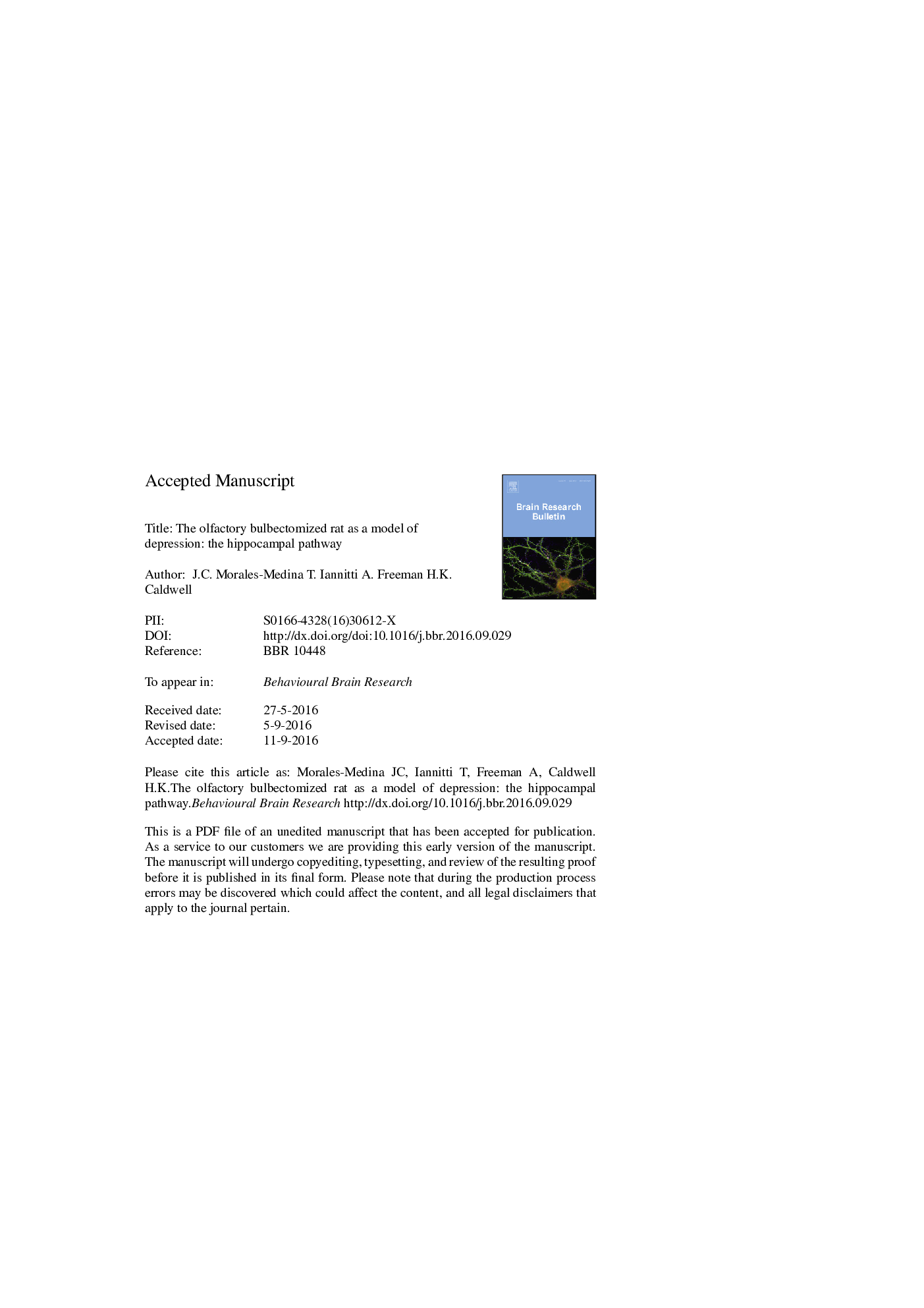| Article ID | Journal | Published Year | Pages | File Type |
|---|---|---|---|---|
| 8838005 | Behavioural Brain Research | 2017 | 52 Pages |
Abstract
In rodents, the removal of the olfactory bulbs (OBs), i.e. olfactory bulbectomy (OBX), results in numerous alterations in neurotransmitter, endocrine and immune systems, as well as behavioral changes, similar to those observed in depressed patients. Because the behavioral deficits induced in OBX animals are reversed after repeated administration of antidepressants, this is a model often used to test the effectiveness of putative antidepressant agents. Recent evidence suggests that OBX results in the dysfunction of various cellular processes within the hippocampus, including decreases in dentate gyrus neurogenesis, disruption in long-term potentiation in CA1 and CA3 subregions and neuronal atrophy in the CA1 subregion, along with downstream markers, all of which are consistent with abnormal neuronal activity in the hippocampus of clinically depressed populations. Moreover, repeated administration of novel natural and synthetic antidepressant compounds can improve certain aspects of depression-like behavior and hippocampal function. In an effort to bring together the existing literature, this review will focus on the mechanisms by which proposed pharmaceuticals impact hippocampal-dependent processes and behavior.
Keywords
MWMN-methyl-d-aspartatep-CREBNPYNMDACaMKIIdehydroepiandrosteroneFSTDHEAGSK-3βBDNFforced swim testAChEAcetylcholinesterasenovel object recognition testlong-term potentiationLTPdentate gyrusbrain derived neurotrophic factorEntorhinal cortexMorris water mazeNORTcalmodulin-dependent protein kinase IIGlycogen synthase kinase 3βNeuropeptide Y
Related Topics
Life Sciences
Neuroscience
Behavioral Neuroscience
Authors
J.C. Morales-Medina, T. Iannitti, A. Freeman, H.K. Caldwell,
